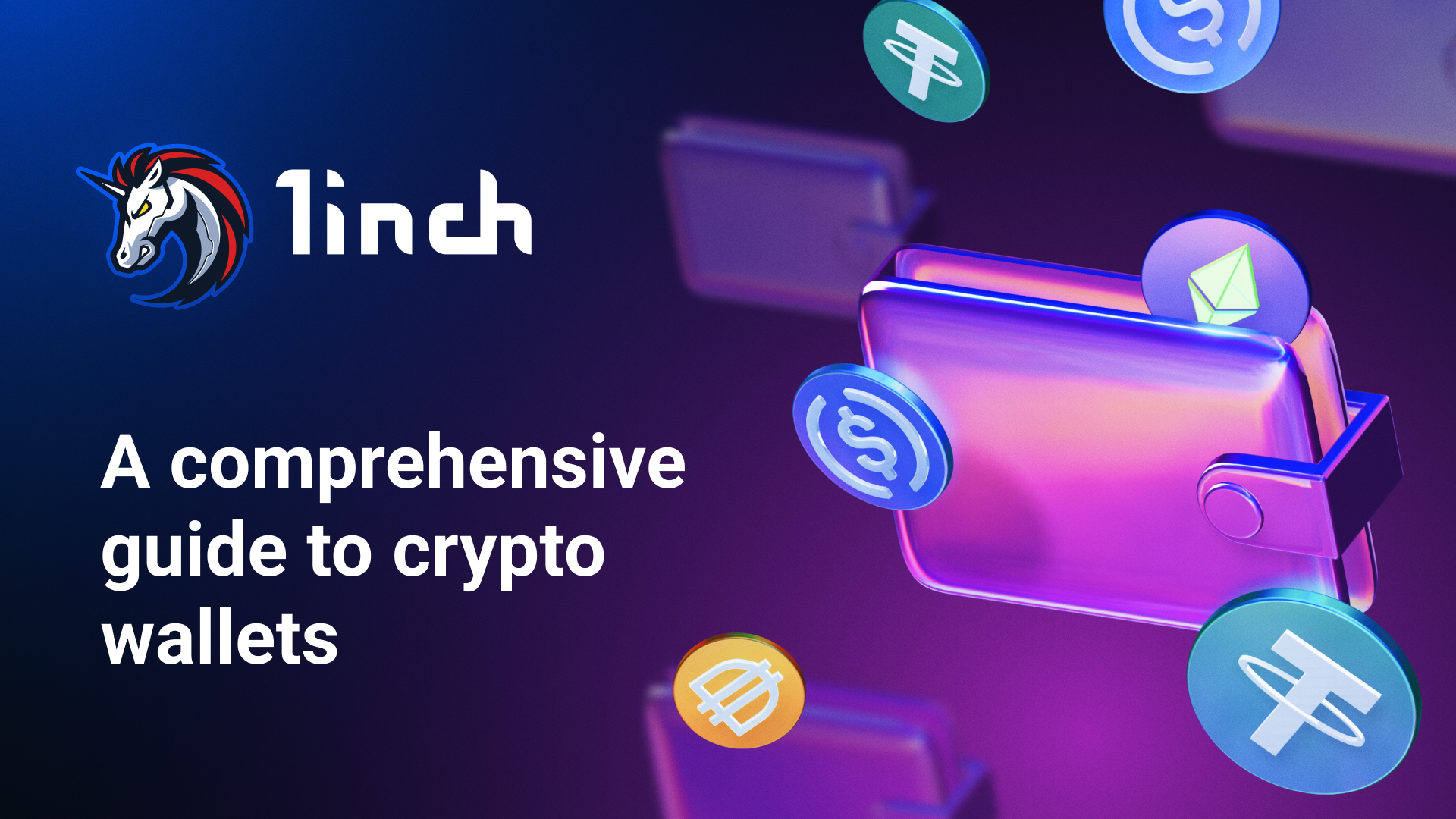What are the main types of crypto wallets?

Crypto wallets are crucial for secure and efficient crypto management, from daily swapping to long-term asset security.
Key takeaways:
In order to interact with crypto, users need a crypto wallet – either an app or a physical device.
Crypto wallets come in various shapes and forms. Most commonly, there is a distinction between software and hardware wallets, as well as between custodial and self-custodial (non-custodial) wallets.
Software wallets
Software wallets, also referred to as hot wallets, are basically programs that users run on their computers or smartphones.To interact with blockchains, software wallets require an internet connection. These online wallets are typically classified into mobile apps, desktop wallets, web extensions and web wallets. Software wallets are as easy to use as a normal bank app.
Since wallets are connected to cryptocurrency exchanges, users can not only store and send but also seamlessly buy and trade crypto through them. Moreover, many wallets allow for purchasing cryptocurrency for fiat by using a bank card or other convenient payment methods.
- Mobile and desktop apps can be downloaded, installed and executed directly on mobile phones, iPads or computers. Private keys are stored on users’ devices, but some wallets provide additional security measures like keys’ side encryption and biometric authentication. Such protection leaves almost no chance for malicious actors to steal funds, even when they manage to access a device.
Some desktop wallets can run a full node, downloading a copy of the entire blockchain onto the computer. Such wallets require substantial disk space and power. - Web wallets don’t require any download or installation since they run on the developer’s servers, and users access them through a web browser.
- A wallet web extension works like any other web extension. It is something between a mobile wallet and a web wallet. An extension should be installed, and users keep their keys but operations are done in a browser extension similar to a web wallet.
Pros:
- Fast trading enabled by the internet connection;
- Easy to set up and use;
- They can offer various advanced features like interacting with dApps or support hardware and HD wallets;
- Available for free download and use.
Cons:
- Some can be vulnerable to malware on the device.
Most wallets come with both desktop/mobile or extension/mobile options. The1inch Wallet and MetaMask are examples of software wallets.
Hardware wallets
A hardware wallet, or cold wallet, such as Ledger crypto wallet or the 1inch Hardware Wallet, is a physical device. It resembles a flash drive and can be connected via Bluetooth to dApps in order to manage crypto while transactions must be confirmed on the physical device.
Pros:
- High-level security. Hardware wallets are less vulnerable to malware or hacks since they keep private keys and funds offline. They can serve as a place for storing significant amounts of crypto.
- Usually compatible with multiple blockchains.
Cons:
- They are less convenient for trading. Hardware wallets always require a connection to other devices for performing transactions.
- Hardware wallets are not free.
Paper wallets
Another type of cold wallet is a paper wallet: a private key or seed phrase (a list of random words providing users access to their funds, no matter what happens with the wallet) printed out on a piece of paper.
Pros:
- It can be a safe way to store private keys unless a user loses the paper wallet or someone else gets access to it.
Cons:
- A paper wallet can’t be used for any transactions.
The difference between custodial and self-custodial wallets
To better understand the difference between these wallet types, it is essential to know what function private keys fulfill. In addition to signing transactions for authorization on a blockchain, they serve as a wallet’s encrypted password. They can be used to access a wallet and its balances from any device, as well as to import one wallet into another. Therefore, the issue of storing private keys is vital to a wallet’s security and it defines the difference between custodial and non-custodial wallets.
- A custodial wallet is managed by a legal entity controlling the private keys and, therefore, the funds. This is where the saying ‘not your keys, not your coins’ comes from. Custodial wallets are offered by centralized cryptocurrency exchanges, such as Binance, Coinbase, Gemini and others. Many of them come in the form of web wallets and exchange accounts.
- A self-custodial wallet doesn’t have any custody. These DeFi wallets don’t store users’ private keys and don't involve a third party, and only users have the authority to spend and manage their funds. The 1inch Wallet, MetaMask, Trust Wallet and some other wallets offer self-custody. Cold wallets are also classified as non-custodial.
Advantages and disadvantages of custodial wallets
Pros:
- Access can be restored if the private keys are lost.
Cons:
- Access to funds and transactions may be blocked or restricted at the request of a third party.
- The safety of funds depends on the third party, which may be vulnerable to hackers. Besides, if an exchange or other third-party managing the wallet goes bankrupt, there is a big chance of losing your funds forever.
- Registration and submission of documents and personal information are usually required.
Advantages and disadvantages of self-custodial wallets
Pros:
- Full and exclusive control over the funds;
- Easy and fast to create since they don’t require the KYC procedure;
- Impervious to third parties’ removal or freezing;
- More secure due to eliminating the middleman storing the private keys and being less attractive to hackers;
- Funds remain available even when something happens to the app. Users can import a wallet into another wallet with private keys or seed phrases (recovery phrases).
Cons:
- If a user loses their password and private keys, there is no way to regain access to their funds.
Multisig non-custodial wallets
Multisignature or shared wallets don’t allow for transactions without multiple signatures. These wallets offer enhanced security and are ideal for use by groups of people or in situations where risks associated with a standard software wallet are more difficult to mitigate. A wallet’s owners can define a set of addresses for providing signatures. A transaction can’t go through if any of the predetermined signatures is missing. Multisig wallets are smart contract-based. Unlike other self-custodial wallets, controlled solely by users, they are controlled by code and their owners.
Pros:
- An extra security level. Eliminating reliance on one person makes it quite challenging for hackers to perform malicious activities even when accessing one of the devices;
- Handy for groups of people or organizations like DAOs or for those who need an escrow account.
Cons:
- Enabling the multisig feature can be a bit more challenging compared with a regular set of single-signature wallets.
HD wallets
An HD (hierarchical deterministic) wallet is a feature that allows users to have multiple public addresses linked to one balance. It enables the generation (derivation) of a large number of new public keys - child keys- from the master key, which is derived from the seed phrase. This feature comes in handy for those who don’t want all their actions to go online from the same address. Users can generate new public keys using wallets that support the HD wallet feature.
Pros:
- Prevents re-use of addresses for those who perform a significant amount of transactions;
- Addresses remain safe even when losing the backup of a private key.
Cons:
- Handing over child keys and master keys simultaneously is not possible.
Some examples of software and hardware wallets supporting the HD wallet feature include the 1inch Wallet, MetaMask and Ledger.





























